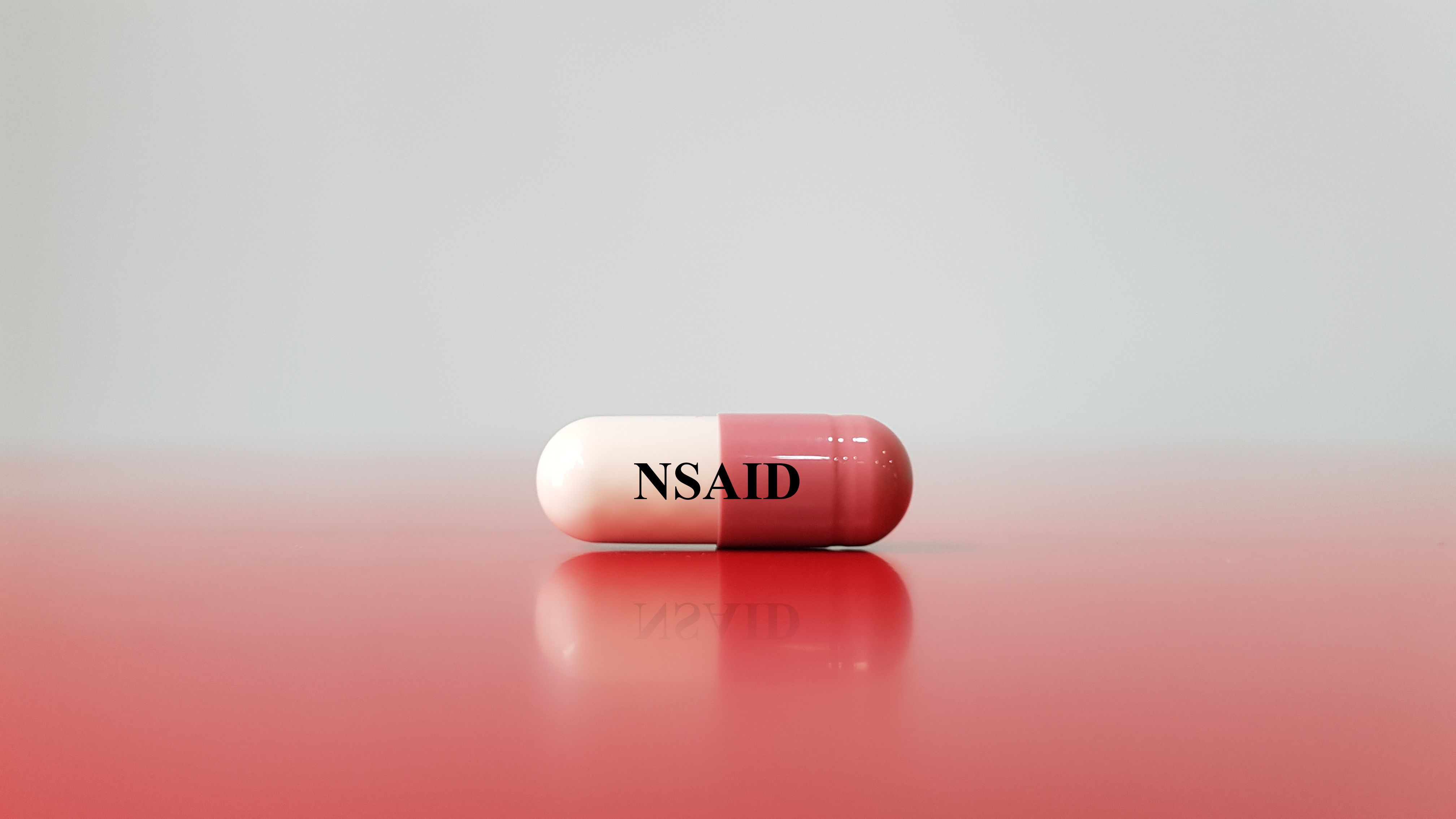Article
New Research Discovers Impact of NSAIDs on C. Difficile
Author(s):
The data could inform how non–steroidal anti-inflammatory drug-mediated mitochondrial uncoupling could affect other diseases.
New research from the Children’s Hospital of Philadelphia (CHOP) has found why nonsteroidal anti-inflammatory drugs (NSAIDs) worsen gastrointestinal infections caused by Clostridioides difficile (C. diff). In the research, investigators showed that NSAIDs cause a disturbance to the mitochondria of cells lining the colon which triggers damage caused by the pathogenic toxins.
Capsule of NSAID drug on white background | Image credit: Joel bubble ben - stock.adobe.com

C. diff is a form of bacteria that could lead to diarrhea, complex infection, and even death. How these symptoms can appear are still unknown to researchers, although the main evidence shows that diet and pharmaceutical drugs could progress infection and disease.
Other studies have been conducted that showed NSAIDs could have a negative effect on the gut for individuals who have C. diff or inflammatory bowel disease (IBD). The study confirmed that if individuals take NSAIDs for an extended period it can lead to issues like stomach ulcers and intestinal injuries that can cause bleeding and perforation of the intestinal tissue.
These concerns were studied and researchers were able to confirm that NSAIDs can affect cyclooxygenase (COX) enzymes. COX helps dimmish inflammation and pain while weakening the mucosal function in the upper gastrointestinal tract.
“NSAIDs also have off-target effects and have been shown to affect cellular mitochondria by uncoupling cellular mitochondrial functions, but researchers had not explored the mechanism or impact of these off-target effects when it comes to C. difficile infection,” said the authors of the press release.
In order to find these effects, the researchers used in vitro and mouse models of a C. diffinfection to test how permeable colonic epithelial cells are when interacting with the NSAID indomethacin. The study found that the indomethacin and C. difftoxins caused an increase in the epithelial cell barrier permeability and inflammatory cell death. These cells, combined of both toxins, work in partner to increase the severity of the pathogen.
The press release confirmed that when researchers found that NSAIDs impair the C. diffinjection without COX inhibition and only confine the effects to the mitochondria, they treated the colonic epithelial cells. When treating it with a molecule that has a comparable structure to indomethacin, minus the skill to prevent the COX enzyme, the NSAID-like molecule resulted in cell death. However, when adding selective COX inhibitors, it did not add to cell death.
According to the news release, the researchers used mice that were treated with indomethacin or NSAID-precursor molecules in the past.
“To further define the specific mechanisms driving these off-target effects of NSAIDs, researchers looked at mitochondrial functions in colonic epithelial cells in vitro and in mice. They observed that the combination of NSAIDs and C. difficile toxins increased damage to colonic epithelial cell mitochondria and disrupted several important mitochondrial functions,” said the authors of the press release.
The findings suggest could inform how NSAID-mediated mitochondrial uncoupling could affect other diseases, like colorectal cancer, small intestinal injury, and IBD.
Reference:
CHOP researchers reveal how NSAIDs worsen C. difficile infections. EurekAlert!. News release. July 19, 2023. Accessed July 25, 2023. https://www.eurekalert.org/news-releases/995751.
Newsletter
Stay informed on drug updates, treatment guidelines, and pharmacy practice trends—subscribe to Pharmacy Times for weekly clinical insights.






